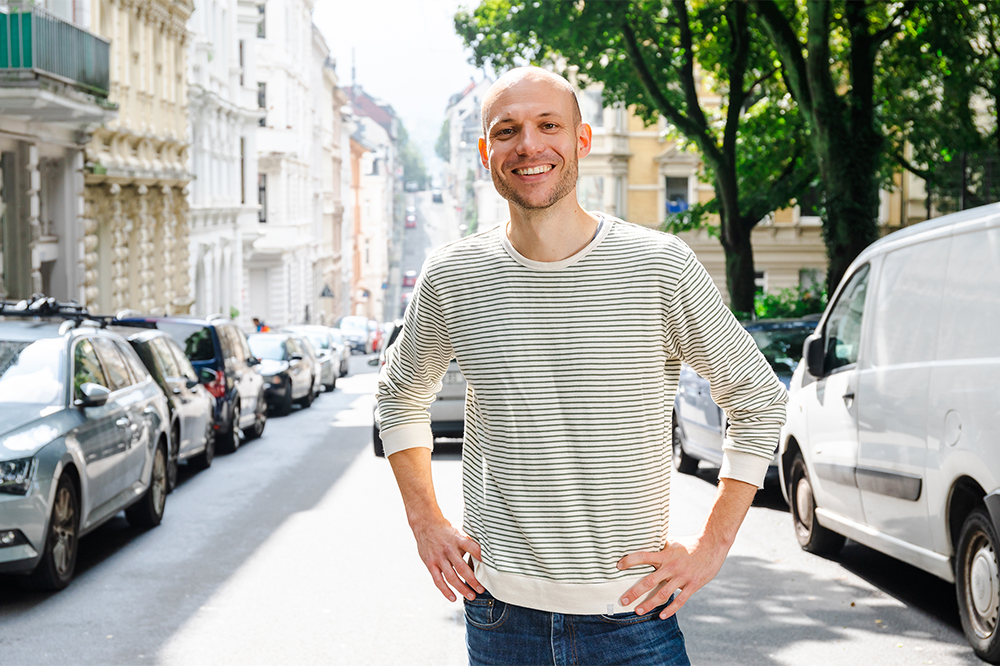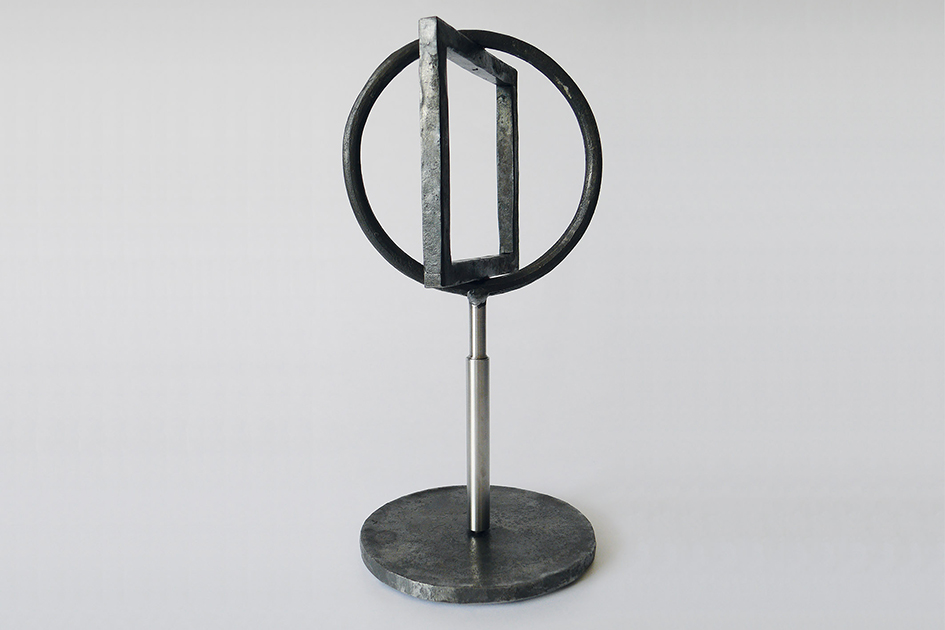TransformativeScienceResearch Prize
In 2017, the "Transformative Science" research prize has been offered for the first time by the Wuppertal Institute and the Zempelin Foundation in the Stifterverband (Donors' Association). Now the prize is awarded for the fifth time.
The "Transformative Science" research prize focuses on all forms of research that spark and promote social impetus and thus involve civil society. Transdisciplinary research design plays a significant role in this. The research prize is endowed with 25,000 euros. The money is awarded to prize winners for their project ideas in the field of transformative science. The Wuppertal Institute awards the research prize, which is funded by the Zempelin Foundation in the Stifterverband (Donors' Association) for the Promotion of Humanities and Sciences in Germany (Stifterverband). The Wuppertal Institute sees it as recognition of its achievements in this field that the Donors' Association commissioned the Institute to coordinate the award of the Zempelin Foundation-sponsored prize for "Transformative Science".
Announcement 2021
The research prize focused on individuals and research teams whose scientific work or individual projects have influenced processes of social change and whose outstanding transformative research can be expected to continue in the future. In 2021, the call focued on contributions in the field of transformative innovations. The central characteristic of transformative innovations is that they have a particularly high potential to advance the overall process of a major transformation to sustainability. They can take the form of innovative new technologies, processes, services, organisational structures and institutions, actor networks, political frameworks or even value systems of different actors. The prize money is to be used to create scope and resources for the implementation of project ideas in the field of transformative research. Researchers from universities and non-university research institutions are eligible to apply. An independent jury will select the winner or the winning team.
The 2021 winner
This year, the jury chose Matthias Wanner as the recipient of the 2021 "Transformative Science" research prize worth 25,000 euros. The jury members were impressed by the prize-winner’s wide-ranging contributions to transformative research. One focus of Wanner's work is on Wuppertal, which he considers to be an attractive place of transformation with vast potential. Together with the Wuppertal Institute, the Centre for Transformation Research and Sustainability (TransZent) at the University of Wuppertal and other partners, Wanner has successfully inspired significant new momentum in the city. He has also shown commitment to strengthening networks and the interdisciplinary and transdisciplinary exchange of ideas.
Matthias Wanner expressed his delight at winning the prize: "Transformative and transdisciplinary research are still not highly regarded in the scientific system. That makes me all the more pleased to receive this award and the recognition that comes with it. I also see the prize as a thank you to the stakeholders who are active in social initiatives like Utopiastadt and have engaged in joint research and development projects over many years in order to promote urban change."

Use of the prize money and award presentation
Matthias Wanner will use a small amount of the prize money to support the work of the local co-research group by financing materials, printing costs or travel expenses without bureaucratic red tape. "Most of the prize money will go towards promoting dialogue between researchers in real-world laboratories, administrative staff in local government, scientists working in the fields of spatial and planning science and citymakers," explained Matthias Wanner. In this context there are plans – kick-started by the prize money – to hold a symposium in the autumn of 2022 with the aim of strengthening effective, strategic cooperation between the research community, public administration and civil society for the benefit of sustainable urban development.
The "Transformative Science" research prize will be officially presented on 5 October 2021 at a hybrid event (German only), beginning at 16.30 CEST in the former Mirke railway station, the headquarters of the Utopiastadt urban development project. The award ceremony will also serve to launch the dialogue with citymakers and will thus pave the way for the symposium in autumn 2022. All those interested in watching the presentation can register for the event via the link below. The Wuppertal Institute plans to upload the video to its YouTube channel afterwards.
About the prize-winner, Matthias Wanner
Research scientist Matthias Wanner has held a scholarship from the Heinrich Böll Foundation since 2018 to work on his PhD thesis on the subject of "Civic engagement and place identity: a real-world laboratory for the transformation of urban well-being in a neighbourhood in Wuppertal/Germany" at the Leuphana University of Lüneburg under Prof. Dr. Daniel Lang. Alongside his primary activity as a Heinrich Böll Foundation PhD scholar, Wanner is also involved in a lesser capacity in the “Transformative learning through commitment – social innovation as a driving force for environmental education and education for sustainable development” (TrafoBNE) project in the Innovation Labs research unit at the Wuppertal Institute.
The researcher studied psychology and political sciences at the University of Münster (WWU) and held a scholarship from the German Academic Scholarship Foundation throughout his university course. Alongside his doctorate, Matthias Wanner has worked on a diverse range of projects in Wuppertal’s real-world laboratory, including as a research fellow in the University of Wuppertal's TransZent centre (2015–2018). While in this position, he led the "Mirke real-world laboratory" work package within the "Well-Being Transformation Wuppertal" project. This team analysed the neighbourhood development of the Mirke district and carried out various interventions to boost the engagement and participation of civil society. Wanner’s expertise lies in experimental and participatory urban and neighbourhood development, the design, implementation and evaluation of real-world laboratory projects and in education and learning in transformative settings.
The jury's reasoning
The jury attached great importance to the social relevance of the research, its scientific quality and the innovative research approach. It also took account of the potential of the research to serve as a model and how it engaged with its stakeholders. The jury members are united in their opinion that, through his research in Wuppertal’s real-world laboratory and other contexts, Matthias Wanner will continue to trigger valuable momentum at the interface between science and practical application. According to the jury, Wanner's research is blazing a distinct trail in the field of transformative research and education.
The seven jury members
- Prof. Dr. Claudia Hornberg
University of Bielefeld, Faculty of Health Sciences; Environment and Health - Prof. Dr. Heike Köckler
Hochschule für Gesundheit (University of Applied Sciences), Dean of the Department of Community Health, Professor for Social Environment and Health - Prof. Dr. Jasmin Mantilla-Contreras
University of Hildesheim, Institute of Biology and Chemistry; Ecology and Environmental Education - Prof. Dr. Wolfgang Marquardt
Chairman of the Board of Directors of Forschungszentrum Jülich Research Centre - Dr. Volker Meyer-Guckel
Donors' Association for the Promotion of Humanities and Sciences in Germany (Stifterverband), Deputy Secretary-General and member of the executive board, Head of Programmes and Funding - Prof. Dr. Roland Scholz
Danube University Krems, Chief Senior Scientist and visiting professor in the Department for Knowledge and Communication Management - Dr. Steffi Ober
Initiator and Head of the Civil Society Platform "Forschungswende"

About the research prize
The "Transformative Science" research prize is aimed at all forms of research that inspire society, promote social change and thereby engage the civil society. Transdisciplinary research design plays an important role in this process. The award-winners receive 25,000 euros in prize money. This money goes to support the winners in implementing their project ideas in the field of transformative science. In addition to the prize money, the winning team receives a sculpture that has been forged from the steel rails of the Wuppertal suspension railway – the Schwebebahn – built in 1898.
